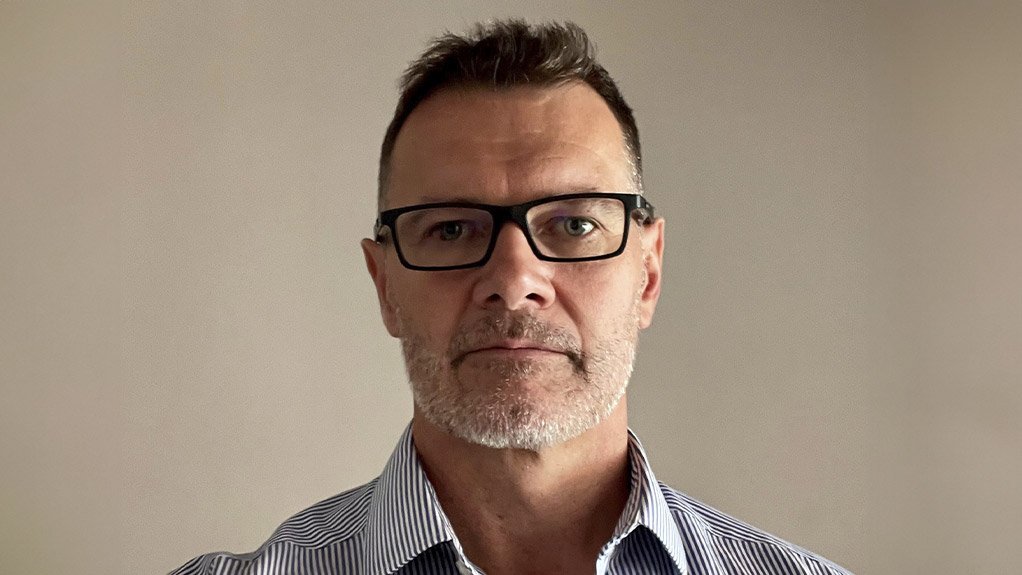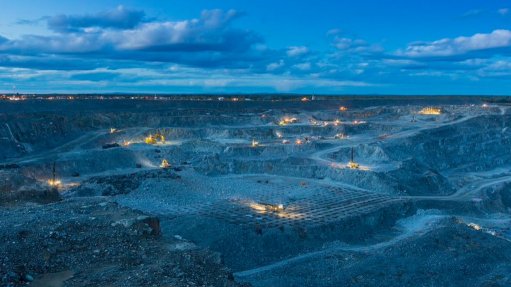Navigating the supply chain for Scope 3 emissions
This article has been supplied by the author and has not been written or solicited by Creamer Media. It may be available only for a limited time on this website.
By Ben Selier, Vice President, Secure Power, Anglophone Africa at Schneider Electric
It is encouraging to note that datacentres across the globe are taking proactive steps to incorporate renewable energy into their overall energy supply posture, moving one step closer to reaching their decarbonisation goals.
However, there are still some significant hurdles to overcome and probably the most challenging is Scope 3 emissions. In fact, according to research by the UN Global Compact, more than 70% of company’s carbon emissions are Scope 3 which encompass indirect contributions like business travel, waste management, and the datacentre’s supply chain.
Businesses that are serious about their decarbonisation efforts need to look beyond their own operations and address their entire value chain. Furthermore, they have to encourage and help suppliers, customers, and other business partners to strive for greater energy efficiency and cleaner energy procurement.
Data collection practices for a reporting framework
Quantifying Scope 3 emissions in the value chain falls within with broader efforts to comprehensively assess and manage environmental impact. Here, a data-driven approach is essential for operators to identify and categorise emissions from operations and the supply chain, enabling targeted efforts for impactful carbon reduction. This includes scrutinising outsourced IT services from cloud and colocation providers.
The challenges datacentre operators often face is a lack of reliable supplier data, quantitative tools, and an accounting/reporting methodology. Establishing a GHG framework that incorporates accurate carbon counting, target setting, and systematic data and emission source reviews can assist in creating an achievable reduction plan.
Electricity generation, GHG (greenhouse gas) emissions, and water consumption determine the carbon footprint and water footprint of datacentre including that of its suppliers. To be successful, suppliers must provide datacentre operators with their own Scope 3 emissions data, related to the products used in their datacentres.
These emissions vary significantly depending on many factors including datacentre size, redundancy level, location, electricity emission factor, core and shell construction, IT equipment configuration, energy efficiency, equipment lifespan and replacement frequency and value chain activities.
Sustainability reporting can provide a competitive advantage
Beyond compliance, GHG reporting, including Scope 3 emissions, is recognised as a strategic practice that aligns with sustainability goals, manages risks, and positions companies as responsible entities in an environmentally conscious market.
This reporting also bolsters investor confidence and investment from those seeking sustainable opportunities. Prioritising emissions reduction and sustainability in supply chains provides a competitive edge, contributing to business continuity and overall company reputation.
Vendor commitment to reducing embodied carbon
As mentioned, Scope 3 emissions pose a reporting challenge which is why datacentre operators to must integrate sustainability into their selection criteria for equipment suppliers and service providers.
Vendors should commit to reducing the embodied carbon of their products, making environmental product disclosure documents easily accessible. By actively seeking environmentally conscious suppliers, datacentre operators can play a vital role in reducing the overall carbon footprint associated with Scope 3 emissions.
While many organisations have focused on measuring and reporting Scope 1 and 2 emissions, addressing Scope 3 emissions can be daunting. Schneider Electric offers resources and tools to help organisations define Scope 3 emissions, including an inventory of nine emissions source categories and datacentre-specific subcategories for accounting and reporting.
This includes a modelling tool to estimate CO2 emissions by simulating energy consumption within data centres, accounting for factors like power consumption and overall efficiency. Following these steps, datacentres can enhance their understanding of Scope 3 emissions and implement tools and practices to work towards reducing their environmental impact.
Comments
Press Office
Announcements
What's On
Subscribe to improve your user experience...
Option 1 (equivalent of R125 a month):
Receive a weekly copy of Creamer Media's Engineering News & Mining Weekly magazine
(print copy for those in South Africa and e-magazine for those outside of South Africa)
Receive daily email newsletters
Access to full search results
Access archive of magazine back copies
Access to Projects in Progress
Access to ONE Research Report of your choice in PDF format
Option 2 (equivalent of R375 a month):
All benefits from Option 1
PLUS
Access to Creamer Media's Research Channel Africa for ALL Research Reports, in PDF format, on various industrial and mining sectors
including Electricity; Water; Energy Transition; Hydrogen; Roads, Rail and Ports; Coal; Gold; Platinum; Battery Metals; etc.
Already a subscriber?
Forgotten your password?
Receive weekly copy of Creamer Media's Engineering News & Mining Weekly magazine (print copy for those in South Africa and e-magazine for those outside of South Africa)
➕
Recieve daily email newsletters
➕
Access to full search results
➕
Access archive of magazine back copies
➕
Access to Projects in Progress
➕
Access to ONE Research Report of your choice in PDF format
RESEARCH CHANNEL AFRICA
R4500 (equivalent of R375 a month)
SUBSCRIBEAll benefits from Option 1
➕
Access to Creamer Media's Research Channel Africa for ALL Research Reports on various industrial and mining sectors, in PDF format, including on:
Electricity
➕
Water
➕
Energy Transition
➕
Hydrogen
➕
Roads, Rail and Ports
➕
Coal
➕
Gold
➕
Platinum
➕
Battery Metals
➕
etc.
Receive all benefits from Option 1 or Option 2 delivered to numerous people at your company
➕
Multiple User names and Passwords for simultaneous log-ins
➕
Intranet integration access to all in your organisation





















